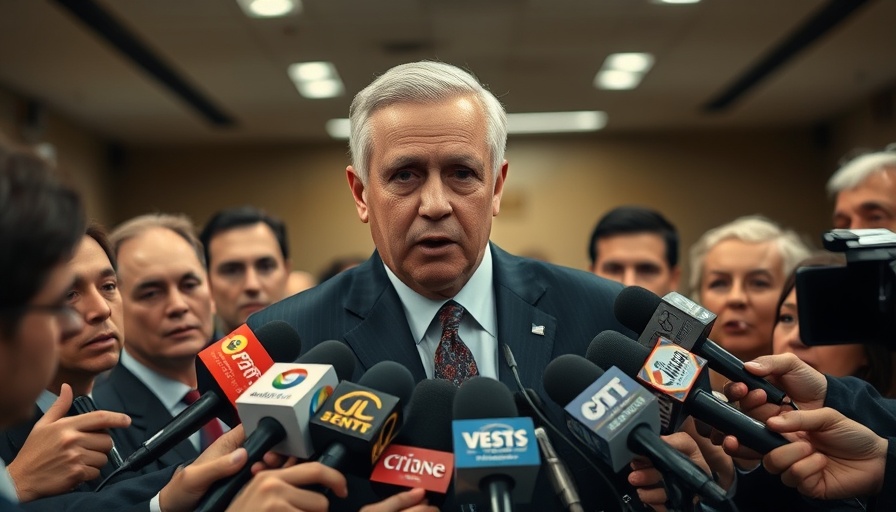
Understanding Ecuador's Political Landscape Amid Drug Violence Concerns
The recent closeness of the presidential race in Ecuador has captured the attention of voters and international observers alike. With polling stations closing on a Sunday evening and turnout reaching nearly 84%, it was evident that the stakes were high for the candidates. Incumbent Daniel Noboa emphasized his commitment to addressing the rampant drug violence increasingly threatening the nation, while opposition candidate Luisa Gonzalez pushed for a return to socialist practices reminiscent of former president Rafael Correa’s administration.
Concern Over Drug Cartel Influence
As drug violence continues to plague Ecuador, citizens are becoming increasingly concerned about the future. Noboa has focused his campaign on the urgency of tackling the drug trade, which not only affects public safety but also hinders economic progress. Historical data indicates that regions affected by drug violence often see economic downturns and social unrest. Gonzalez’s supporters argue that a socialist approach would help alleviate poverty and address root causes of crime, suggesting that social policies can be a proactive measure in preventing drug-related violence.
Candidate Strategies to Combat Violence
Both candidates have outlined their strategies regarding crime and economic development. Noboa advocates for bolstering security forces and fostering international partnerships to combat drug trafficking effectively. In contrast, Gonzalez argues for investing in community programs and social services as a way to reduce crime rates over the long term. Each approach has its enthusiasts and detractors, presenting voters with a challenging decision.
The Role of Electoral Oversight
With over 45,000 observers stationed at polling sites, there is a heightened focus on transparency and fraud prevention during these elections. The perception of electoral integrity is essential for both candidates and the public, as trust in the democratic process can significantly affect governance post-election. Electoral oversight will not only provide peace of mind to participants but spur confidence in the final results.
Implications on Ecuador's Future
As the votes are counted, the implications of this election extend beyond the immediate candidates. The decisions made by the Ecuadorian public hold significant weight in how the nation will confront its issues surrounding drug violence and economic stability. Whichever candidate emerges victorious, the expectation is clear: significant action will be needed to address the challenges that have long been plaguing Ecuador.
Looking Ahead: Possible Outcomes
The aftermath of this election could lead Ecuador down divergent paths depending on the winning candidate. If Noboa secures another term, the continued focus on security could align closely with U.S. interests in stabilizing the region against drug threats. Alternatively, a Gonzalez presidency might signal a shift towards social programs, reflecting a broader trend in Latin America towards leftist governance that seeks to address systemic poverty and inequality. The immediate future will provide crucial insight into how these strategies could impact the socio-economic fabric of Ecuador.
Coinciding Global Concerns
Amidst the heavy local implications, global financial markets are observing closely. Investors looking into the South American region may need to reconsider their strategies based on the electoral outcome, particularly in sectors susceptible to political stability, like tourism and international trade. Issues such as the resurgence of inflation and interest rates will also play critical roles in how investment groups approach Ecuador in the coming years.
Conclusion: A Call for Engagement
As Ecuador’s citizens stand at a crossroads, their decision carries the weight of future socio-economic trajectories and public safety. As an engaged global community, it is imperative to watch these outcomes closely and understand the interconnected nature of political decisions and economic impacts, both locally and abroad. For those involved in investment strategies, monitoring how the election unfolds will be crucial in navigating the future landscape.
 Add Row
Add Row  Add
Add 



Write A Comment